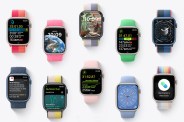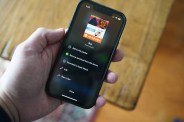Apple wants make it even difficult for hackers to hack into your iPhone, iPad or Mac. It just announced an all-new Lockdown mode that will be coming to most of your Apple devices (iPhone, iPad and Mac) this fall with the latest software updates. And it’s way different and way more sophisticated than your standard PIN code or two-factor authentication. Apple claims that Lockdown mode will offer “extreme” protection.
Here’s what you need to know.
What is Lockdown mode?
Lockdown mode is a new feature that aims to greatly protect your iPhone, iPad or Mac from cyberattacks and other digital threats. When turned on, it will harden your device’s defenses as well as limit certain functionalities when doing things like browsing the web (with Safari or Chrome), using messaging apps (like iMessage or WhatsApp), using Apple’s other services (such as FaceTime), and connecting your device via wire to a computer or other external accessory.
Who should use Lockdown mode?
Admittedly, Lockdown mode is a feature that’s only designed for a small number of people that face abnormal amount of cyberattacks and thus are more at risk to being hacked. These are typically journalists, politicians, activists and other dissidents.
How will I know if I should use Lockdown mode?
If you’re somebody who is more at risk to these cyber attacks, Apple will send you a notification via iMessage and email (the one that’s attached to your Apple ID) alerting you as much. It will then encourage you to turn on Lockdown mode.
Will I have to use Lockdown mode?
Nope. It’s completely optional. In fact, the vast majority of people who have an iPhone, iPad or Mac will never have to use Lockdown mode.
What’s the downside of Lockdown mode?
The reality is that you’re not going to want to have to turn Lockdown mode. This is because it’s going to greatly limits your device’s abilities and thus going to change how you use it. Basically, it’s going to sacrifice convenience in the name of security.
For example, when Lockdown mode is turned on, it will prevent you from receiving certain links, images (like GIFs and Memes) and other features while using your messaging app (especially iMessage). It will prevent you from accessing certain websites. And it’ll block FaceTime calls from numbers you don’t have and even from contacts you haven’t heard from in a while.


